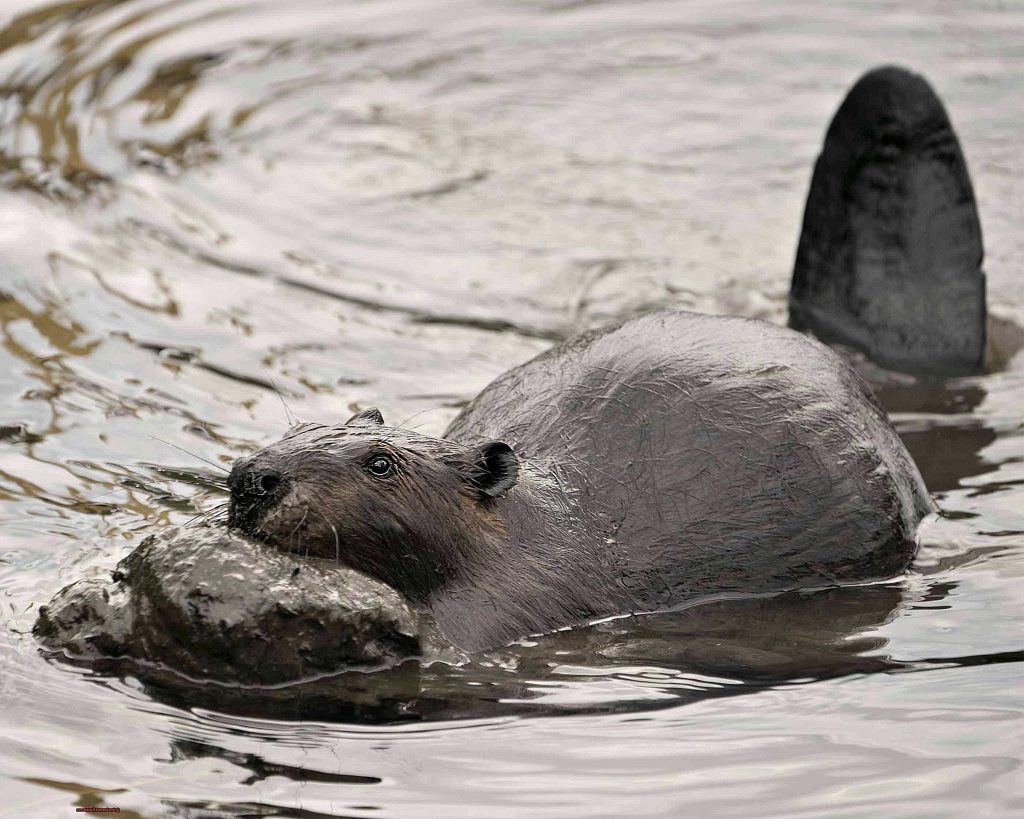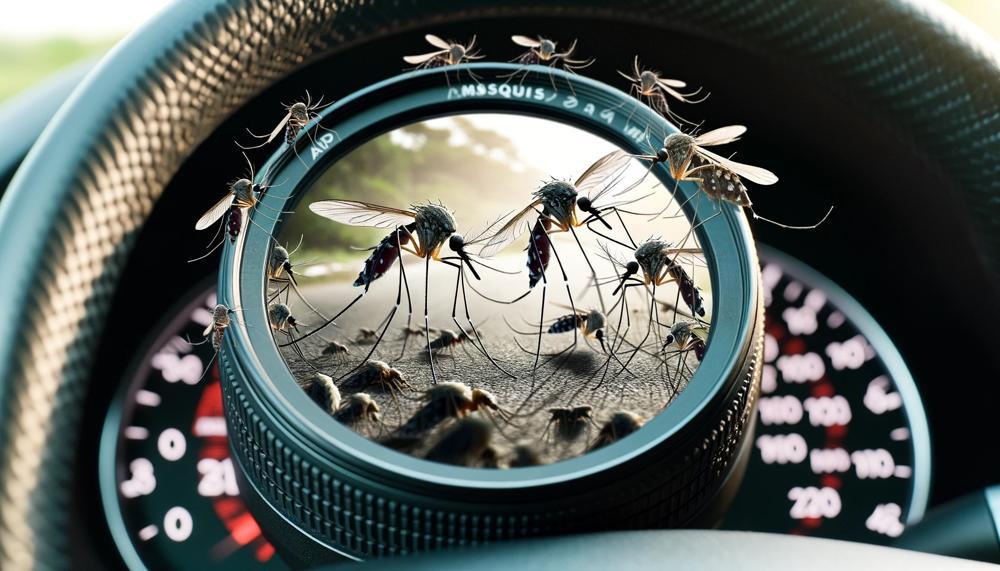Have you ever crossed paths with a beaver and dismissed them as harmless creatures? Think again.
These seemingly adorable rodents possess some unexpected and potentially hazardous characteristics. In this blog post, we will embark on a journey through the world of beavers to uncover the potential dangers they pose to both humans and their surroundings.
So, fasten your seatbelts and prepare to delve into the not-so-cuddly side of beavers.
Table of Contents
Are Beavers Dangerous?
The question of whether beavers are dangerous may seem straightforward, but the answer is not as simple as a yes or no. While these creatures are not inherently dangerous, there are circumstances in which they can pose a threat to humans and pets. Let’s explore the potential dangers of encountering a beaver and how to handle such situations.
Aggressive Behavior
Beavers are known for their docile nature, but they can exhibit aggressive behavior when feeling threatened or their territory is invaded. In such situations, they may attack in defense, especially if it involves protecting their young. It is crucial to give them space and respect their boundaries to avoid any confrontations.
Rabies
One of the biggest concerns when encountering a beaver is the risk of rabies. These animals can carry this deadly virus, which can make them even more dangerous towards humans. If you come across a beaver displaying unusual aggression, it is best to keep a safe distance and seek assistance from animal control.
Potential Injuries
Although beavers do not actively seek out humans as prey, they may still attack if they feel threatened. Their sharp teeth and claws can cause serious injuries, especially if they perceive a threat. It is essential to give them space and take heed of any warning signs such as hissing or growling.
Protecting Your Pets
Beavers may also view pets as a threat and attack them if they enter their territory. Dogs are particularly at risk as they may try to chase or confront a beaver. To keep your pets safe, it is important to keep them on a leash and avoid areas where beavers are known to reside.
Can Beavers Get Rabies?
When questioning the susceptibility of beavers to rabies, one may encounter various misconceptions and anxieties surrounding these adorable creatures. As a specialist on the subject, it is my duty to provide you with precise and comprehensible information regarding the actual risk of contracting rabies from a beaver.
The short answer is yes, beavers can contract rabies. However, the probability of transmitting it to humans or other animals is exceedingly low. Let’s delve into the specifics and debunk some myths about beavers and rabies.
To begin, let’s discuss what rabies truly is and how it is spread. Rabies is a viral illness that affects the central nervous system of mammals, including humans. It is typically transmitted through the bite of an infected animal, though it can also be acquired through exposure to infected saliva or brain tissue.
Now, let’s address the concern of beavers being hostile and possibly transmitting rabies through bites. While it is true that beavers possess sharp teeth and can defend themselves when feeling threatened, they are not known for their aggression. They will only bite in self-defense or when they feel their territory is being invaded. Therefore, unless you provoke a beaver or attempt to handle one, the likelihood of getting bitten is extremely low.
Moreover, beavers are not considered primary carriers of rabies. This indicates that they are not frequently infected with the virus and are more prone to acquiring it from other infected animals rather than serving as a source of transmission themselves. In fact, a study published in the Journal of Wildlife Diseases found no reported cases of beavers transmitting rabies to humans in North America.
So why do some individuals associate beavers with rabies? This could be attributed to their inclination to reside near water sources where other wildlife may also inhabit. It is plausible for a beaver to come into contact with an infected animal’s saliva or brain tissue in these locations.
Are Beavers Aggressive?
In short, yes – beavers can exhibit aggression. When provoked or threatened, they may unleash their fearsome weapons – sharp teeth and claws. This is especially evident during mating season when their territorial instincts kick in, making them fiercely protective of their mates and offspring. Therefore, it is crucial to give them their space and avoid any actions that may be perceived as hostile.
However, it’s not just their aggression that poses a threat to humans. Beavers are notorious for causing damage to trees and vegetation with their sharp incisors. Their gnawing can lead to trees toppling over, which can be hazardous for unsuspecting individuals walking or camping in areas abundant with these animals.
Moreover, their knack for constructing dams and lodges in bodies of water can also pose a risk to humans engaging in recreational activities such as swimming or boating. These structures can create strong currents and hidden obstacles that may prove perilous if not acknowledged.
But physical dangers are not the only concern when it comes to beavers. These creatures are known carriers of diseases such as rabies and tularemia. While rare, these illnesses can be transmitted to humans through bites or contact with contaminated water or objects. Thus, it is imperative to take necessary precautions when in areas known to harbor a high population of beavers.
Adding to this complexity is the fact that beavers are nocturnal creatures – meaning they are most active at night. This makes it challenging for humans to spot them and avoid potential encounters.
Do Beavers Bite Humans?
In short, yes. The seemingly harmless and adorable beavers have the potential to inflict significant injuries on humans with their sharp teeth and powerful jaws. These industrious creatures should not be underestimated, as encroaching on their territory can lead to dangerous encounters. However, before you start building a fortress around your home, it’s important to understand the facts and tips for dealing with these gnawing creatures.
The Good and Bad of Beaver Behavior
While beavers may appear to be gentle creatures, their ability to fell trees and build dams with their sharp teeth and powerful jaws shows their true strength. This means that they are more than capable of causing harm to humans who get too close. It’s essential to note that beavers are not predators and do not actively hunt or eat humans. Their bites are typically a form of self-defense or protection of their young.
But what drives beavers to attack humans? Firstly, they are territorial animals who will protect their space and resources, including food and shelter, from perceived threats. This can include humans who get too close to their dam or lodge. Additionally, if a beaver has rabies, a viral disease that affects the nervous system, they may become more aggressive. Rabies can be fatal to humans if left untreated.
Preventing Beaver Attacks
The best way to avoid being bitten or scratched by a beaver is to give them their space. It is crucial to stay away from their dams or lodges, especially if you are not vaccinated against rabies. If you encounter a beaver in the wild, remain calm and slowly back away, allowing the animal enough space to retreat.
It’s also important to note that beavers are most active at night, so exercise extra caution when venturing out during this time. If you have pets, make sure to keep them on a leash near water bodies known to have beavers.
Do Beavers Attack Humans?
As a homeowner dealing with pest problems, it is crucial to understand the risks associated with encountering these creatures and how to prevent attacks. In this blog post, we will delve into the potential dangers of encountering a beaver and provide precautions to ensure safety in such situations.
The Dangers of Crossing Paths with a Beaver in the Wilderness
Beavers are primarily nocturnal animals, making it unlikely for humans to come across them during the day. However, if one happens to stumble upon them while exploring nature or near a body of water, caution must be exercised. Beavers may attack if they perceive a threat or feel their territory is being invaded. With their powerful jaws and sharp teeth, they can inflict serious injuries, especially when feeling cornered or protecting their young.
Precautions to Keep in Mind When Encountering Beavers
Respect Their Space: Avoid Disturbing a Beaver’s Habitat or Lodge
Beavers are territorial creatures and will fiercely defend their homes against any perceived danger. It is crucial to show respect for their space by keeping a safe distance and avoiding any disturbances. This includes refraining from loud noises or sudden movements that may startle them.
Maintain a Safe Distance
While beavers may appear harmless and endearing, they are still wild animals capable of causing harm if provoked or threatened. If you encounter one in the wild, it is essential to keep a safe distance of at least 50 feet.
Cross Through Quietly
There may be instances where crossing through a beaver’s territory is necessary while hiking or exploring. If this is the case, do so quietly, without causing any harm or disturbance.
Do Beavers Eat Humans?
It’s important to understand that beavers are not naturally aggressive animals. They only exhibit aggressive behavior when they feel threatened or when their territory is being infringed upon. But don’t let their small size fool you – their sharp teeth and powerful jaws can cause significant harm if provoked or cornered.
One of the main reasons for an increase in beaver attacks on humans is their reliance on their sharp teeth as a means of self-defense. As human settlements continue to expand and encroach on their habitats, these animals may feel the need to defend themselves. This is especially true for mother beavers who will fiercely protect their young if they sense any danger.
In addition, rabies can also play a role in making beavers more aggressive and dangerous towards humans. A bite from a rabid beaver can be deadly, with an almost 100% mortality rate in unvaccinated individuals. Therefore, it is crucial to avoid entering a beaver’s territory if you are unsure of your rabies vaccination status.
But do beavers actually eat humans? The answer is no. Beavers are herbivores and do not actively hunt or consume meat. They rely on tree bark and plants for sustenance. However, if they feel threatened or cornered, they will use their sharp teeth and claws to defend themselves, causing severe injuries.
It’s also worth noting that while beavers may seem docile at first glance, they can quickly become hostile if approached too closely. In one instance, a man lost his leg after being bitten by a beaver while trying to take its photo in the wild.
Conclusion
In conclusion, it is evident that beavers should not be underestimated. Despite their cute and harmless appearance, they possess unexpected and potentially dangerous traits. From aggressive tendencies to carrying diseases like rabies, encountering a beaver can pose a threat to both humans and their surroundings.
It is crucial to remember that while beavers are not inherently harmful, they will defend themselves if provoked or feel their territory is being invaded. Giving them space and respecting their boundaries is essential in avoiding any confrontations. When exploring areas with a high population of beavers, it is advisable to keep pets on a leash and refrain from making loud noises or sudden movements.
Moreover, although the risk of contracting rabies from a beaver is low, it is still necessary to take precautions by knowing your vaccination status and seeking assistance from animal control if you encounter an unusually aggressive beaver.
Ultimately, understanding and respecting these creatures’ natural behaviors and habitats are key in coexisting peacefully with these diligent rodents.





